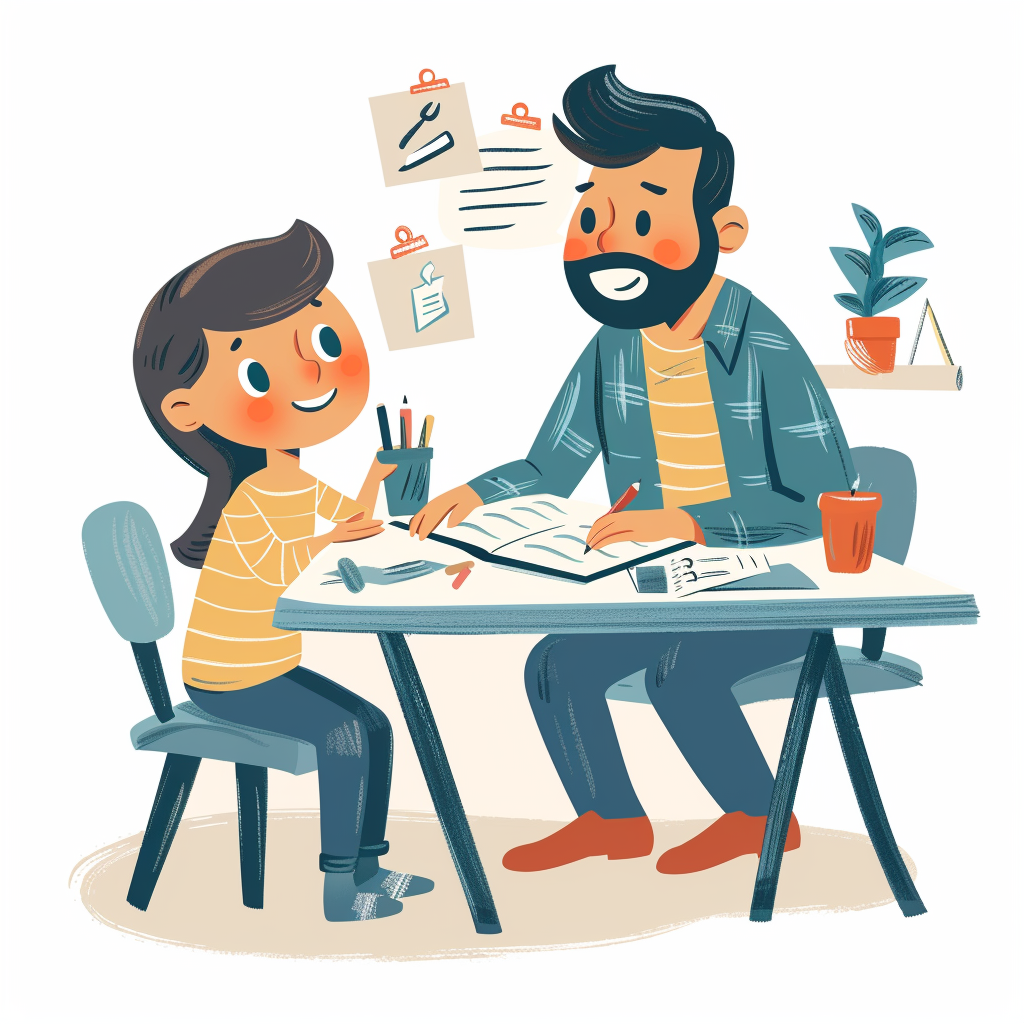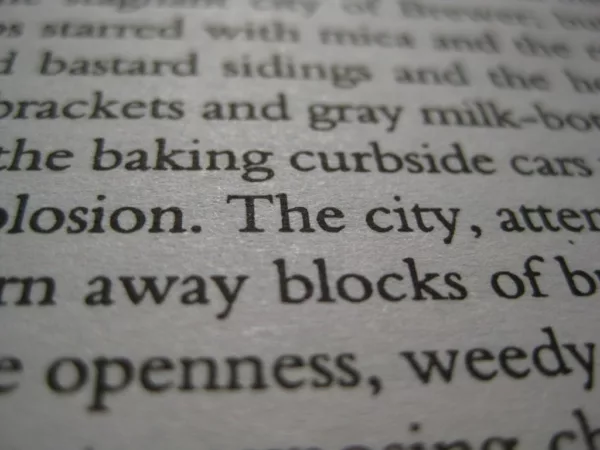Grammar Help - What is a Simple, Compound and Complex Sentence?
Let your child take charge of their learning
Access print-friendly, downloadable Maths and English resources for easy learning.
Our aim is to help children succeed at school. Supporting children in Maths and English can be made easier if you have the right resources.
Choose from our many plans or try us for free with Teach Weekly.


Grammar for Children - Using Different Types of Sentences
A great writer uses different types of sentences to keep the reader interested, change the pace and tone of their writing. Sentences can be spilt into three types - simple, compound and complex.
For example: When you read a story, the writer will have used different types of sentences to keep your interest. The type of sentence used can affect the pace and mood of the story.
- Short simple sentences may be used when the writer wants to add excitement to the story. Short sentences can be used to pick up the pace of the story during an action scene or when the problem in the story is being solved.
- Complex sentences help to add detail. They can be used to add extra detail to what a character thinks or feels. Writers often use complex sentences when they are setting the scene of the story at the beginning, or when introducing characters. Complex sentences can be used to create atmosphere, such as creating a spooky effect if the characters are entering a forest. Complex sentences are longer. They use fronted adverbials, embedded clauses, subordinating conjunctions etc, to make the sentences longer and more interesting.
Teaching Children About Different Types of Sentences at Primary School
When children first start writing they will group words together to create a phrase or simple sentence (clause). As children move into Year 1 or Year 2, they will start to write simple and compound sentences.
From Year 2 onwards, they will be encouraged to use simple, compound and complex sentences in their writing. Children should be encouraged to use the different sentence types in both fiction and non-fiction writing.
Helping Children Improve Their Writing
Children need to be reminded to use compound and complex sentences regularly, given the choice, most will only use simple sentences. In order for children to develop their writing, they need to know why, how and when the different sentence types could be used.
One way of doing this is by getting children into the habit of reading through their finished work, encouraging and showing them how they could improve it by adding conjunctions, such as 'however', 'although', 'furthermore', 'until', etc.
Take a look at our TMKed Grammar Packs which you can purchase from the shop. Created to help children improve their grammar and sentence writing.
Join to Teach My Kids to get access to sentence structure worksheets.
Explanation of a phrase, clause, simple sentence, compound sentence and complex sentence?
Here are some definitions and examples explaining each sentence type.
- What is a Phrase?
A group of words, e.g a flower.
- What is a Clause?
Adds a bit more detail, contains a subject and a verb. When you read a clause, it makes sense on its own, as well as being part of a sentence.
E.g. the flower grew
- What is a Simple Sentence?
If you use a capital letter and full stop with a clause it becomes a simple sentence.
E.g. The flower grew.
- What is a Compound Sentence?
Joins 2 simple sentences, both sentences make sense when you read them on their own. The sentences can be joined using the word 'and, 'but', 'so', 'for','because'.
E.g. I went to the park and I played on the slide.
Maya played on the slide, so Amy went on a swing.
- What is a Complex Sentence?
Has a main clause that makes sense on its own and a sub-ordinate clause, that doesn't make sense on its own. The sub-ordinate clause adds more detail (linked) to the main clause and can be at the beginning, middle or end of the sentence.
E.g Having worked all day, Maya went to the park to play on the slide.
The bookcase, which was made of wood, burnt quickly in the fire.
I went shopping yesterday, despite it raining heavily.
Complex sentences can:
- begin with fronted adverbials such as ' Running scared, .....'
- be made longer by using subordinating conjunctions such as furthermore, however, even though, nevertheless etc
- add detail through he use of embedded clause e.g. The old man, who had broken his leg, hobbled to the shop.
When is a phrase used?
A phrase can be used when labelling things such as pictures, diagrams, tables etc.
When is a simple sentence used?
A simple sentence can be used to put across one idea. Simple sentences can be used in stories when you want to create pace and action.
When is compound / complex sentence used?
A complex sentence can be used when you want to add detail. In a story they can be used to create atmosphere and build pictures or images of the setting, characters etc.
Join to Teach My Kids to get access to sentence structure worksheets. Plus Maths and English Worksheets Covering a Wide Range Of Topics.
You might also like to read:
How To Write More Interesting Sentences
How To Improve Your Child's Creative Writing
6 Ways To Encourage Children To Retell Stories
Free Literacy Worksheets to Help Children Improve Grammar and Sentence Writing:
Free Worksheet - Making Sentences More Interesting - nouns, verbs, adverbs
Free Worksheet - Write Interesting Sentences - conjunctions, adjectives, adverbs

Don't take our word for it...
"Amazing site just renewed my subscription for the second year. This site is well structured and has helped to assure me that the work we do at home co-ordinates and strengthens the work done at school."
"Teach My Kids is a fantastic resource. We use the work sheets to reinforce the Maths and English that our children, James 9 and Katie 8, are learning at school. They are ideal for when we have a spare 10 – 15 minutes, and also give us as parents the opportunity to see how much our kids know!
As and when the work sheets are completed, I log in and tick them as completed, so it’s clear which topics have been covered. I try to do 2 - 4 of worksheets a week and feel that they are of great benefit to both our children.
I would definitely recommend ‘Teach My Kids’, it’s fantastic value for money and if you have any questions or queries these are answered promptly."
"I have found the ‘Teach my Kids’ website to be very helpful and informative. The worksheets met my children’s individual needs at a time when I was struggling with ways in which to support them. They were very easy to follow have made a real impact on their confidence in Maths and English.
The website is clear and well thought out and easy for anyone to follow. Any queries are responded to promptly. A great website for parents!"
"Teach My Kids has all the ingredients of the National Curriculum and above all good lesson planning. Such an excellent tool for parents and children. The worksheets are attractive and easy to read and follow. Excellent lively illustrations. I am impressed by the rewards systems and learning path progress. The learning paths are well constructed and brilliant because all the children in the family can use it. Very useful advice to parents.
I would encouraged parents towards this user friendly and excellent web site."
"Teach my kids is a very valuable website! Great worksheets available that help me and my child on her sometimes confusing learning path. Fabulous helpful and friendly owners, would highly recommend!"
"I have been with Teach My Kids for a few months and can see an improvement in my daughter. The rewards have helped her stay focused."




